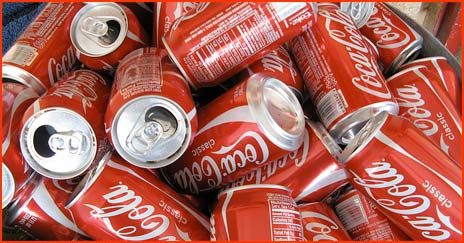
In David Foster Wallace’s novel, Infinite Jest, the action revolves around a movie that is fatally entertaining. In other words, anybody who watches it, dies. This plot is unpleasantly reminiscent of what goes on in certain laboratories where scientists pursue that elusive quality known as “more-ish.” The ultimate culmination of all this research can only be the invention of a food that no one can resist. Dr. Pretlow asks:
How far are we away from that? Would we give it to kids?
The people in the labs cheerfully admit what they are up to. CBS TV and Morley Safer, with Ruth Streeter as the producer, take the audience on an exploration of Givaudan. The company’s name is not as familiar as, for instance, Givenchy — but this corporation’s business has a much larger and more problematic effect on our lives. Their product is flavor. The print version of this story says:
The flavoring industry is the enabler of the food processing business — which depends on it to create a craving… an industry cloaked in secrecy. But recently Givaudan, the largest flavoring company in the world, allowed us in to see them work their magic.
(If you prefer CBS’s video presentation and comments from the public, try this page.) For starters, Givaudan invites world-class chefs to audition new flavors at a yearly cook-off. But the flavorists’ main secret consists of finding and hiring people known as “super tasters” and “super sniffers.” Safer interviews a specialist in soda pop and chewing gum, Michelle Hagen, who notes that there are 750 different flavors associated with oranges and tangerines.
The mission of the super-tasters and super-sniffers is to discover “the Holy Grail — a flavor so good you can’t resist it.” They are only the tip of the iceberg. Around the globe, the company employs close to 9,000 people, many of them engaged mixing up chemical potions, when they’re not busy squeezing flavoring agents from the glands of small forest animals.
Here is a bit of dialogue between Safer and Givaudan representative Jim Hassel, concerning a taste factor known as “linger”:
Hassel: And you don’t want a long linger, because you’re not going to eat more of it if it lingers.
Safer: Aha. So I see, it’s going to be a quick fix. And then —
Hassel: Have more.
Safer: And then have more. But that suggests something else?
Hassel: Exactly.
Safer: Which is called addiction?
Hassel: Exactly.
Safer: You’re tryin’ to create an addictive taste?
Hassel: That’s a good word.
So, count Safer among the “childhood obesity messengers” that the industry wishes would just shut up. Dr. David Kessler tells Safer that the food industry probably did not deliberately set out to create addictive substances, but still, “These flavors are so stimulating, they hijack our brain…”
Givaudan’s vice president of global strategy, Bob Pelligrino, while admitting that the goal is to make food irresistible, sees the problem of obesity lying not in hyper-palatability, but in a “different issue.” Well, yes and no. There is no doubt that a very large portion of food addiction is due to emotional and psychological issues, like any other addiction. But Givaudan and companies like it are doing their darnedest to make sure that addicts have something to be addicted to.
Let us refer once more to the world of satire, where uncomfortable truths are often found. An article in The Onion, titled “Coca-Cola Introduces Coke Mandatory,” quotes a spurious Coke executive who says, “you won’t be allowed to go a day without it.” The parody goes on to say:
Though possible repercussions for failing to meet daily Coke Mandatory consumption requirements have not been formally announced, Hasworth stressed that one 12-ounce can of Coke Mandatory per day is ‘essentialicious,’ and that those who fail to comply with minimum daily allotments ‘will wish they’d done as they were told.’
According to this humorous piece, the corporation plans to bring back daily home delivery, as in the days of front porch milk boxes, to make sure the “mandatory” part is carried out. The minimum order has to be at least a 28-pack of soda per day, per household member. But, the fake press release warns, no other Coca-Cola products can be substituted for Coke Mandatory, though of course they may be added to the compulsory order. In the imagination of the writers, although children under two are exempt, the company announces plans for a corn-syrup-based baby formula that will also become obligatory.
Your responses and feedback are welcome!
Source: “The Flavorists: Tweaking tastes and creating cravings,” CBSNews.com, 11/27/11
Source: “Coca-Cola Introduces Coke Mandatory,” The Onion, 10/03/01
Image by Jasonk.

 FAQs and Media Requests:
FAQs and Media Requests: 











